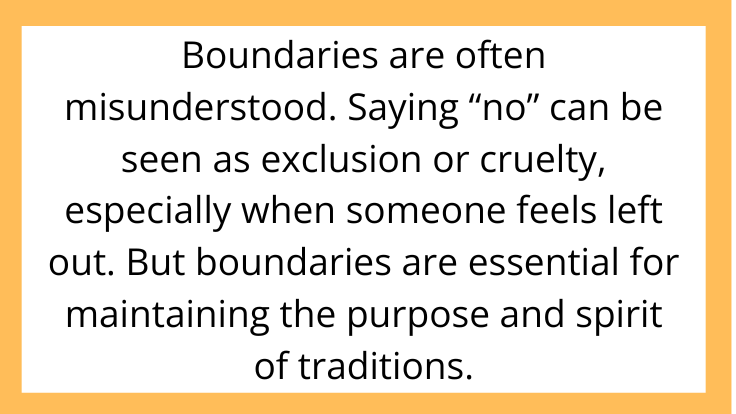AITAH for Not Letting My Younger Brother Bring His Girlfriend on Our Family Vacation?
Family vacations are supposed to be relaxing, a time to reconnect with loved ones and create lasting memories. But what happens when someone wants to bring a guest into what’s traditionally a family-only event? That’s exactly the dilemma faced by a Reddit user who recently posted on r/AITAH asking if they were wrong for telling their younger brother that his girlfriend wasn’t invited to the annual family trip.
This sparked a heated debate online about inclusion, boundaries, and whether family traditions should make space for new relationships. In this post, we’ll break down the situation, explore both sides, and discuss how to handle similar conflicts in a thoughtful and respectful way.
The Situation: Tradition vs. Change

According to the original poster (OP), their family takes the same vacation every summer—just immediate family, no partners, no friends, just siblings and parents. It’s a tradition that’s been in place for years and something they all look forward to as dedicated family time.
However, this year OP’s 19-year-old brother asked if he could bring his girlfriend of six months. OP, who helped plan and partially fund the trip, said no. This caused tension. The brother called OP controlling, and even the parents seemed divided. Some family members felt OP was being rigid, while others believed they had every right to protect the tradition.
Why Setting Boundaries Doesn’t Make You the Villain

Boundaries are often misunderstood. Saying “no” can be seen as exclusion or cruelty, especially when someone feels left out. But boundaries are essential for maintaining the purpose and spirit of traditions.
Here’s why OP might not be wrong:
-
It’s a long-standing tradition: Changing the dynamic can shift the entire mood of the trip.
-
The relationship is still new: Six months might be serious, or it might not. OP may not feel ready to include someone they barely know.
-
Family time is limited: For many, these vacations are the only time everyone gets together without distractions or added personalities.
OP’s reasoning wasn’t about disliking the girlfriend—it was about preserving a specific kind of quality time.
The Counterargument: Is OP Gatekeeping?

That said, it’s worth considering how the younger brother felt. From his perspective:
-
He values his girlfriend’s presence: He might have wanted to share something important with her.
-
He may feel excluded: Especially if other siblings have brought partners in the past (even if briefly).
-
He sees her as part of his life now: And denying her could feel like a rejection of that relationship.
If family traditions are never allowed to evolve, they risk becoming restrictive rather than meaningful. Flexibility can help relationships grow stronger.
Navigating These Conflicts: What Could Have Helped?

If you’re facing a similar situation, here are ways to find middle ground:
-
Set clear expectations early: Let everyone know what’s allowed and what isn’t when planning a group trip.
-
Offer alternatives: Maybe the girlfriend could join for part of the vacation or come along on a different trip.
-
Have an open conversation: Instead of a flat “no,” OP could’ve explained why this tradition matters and invited input from the family.
Good communication prevents feelings of exclusion and keeps everyone on the same page.
What Reddit Had to Say

Commenters were split. Some backed OP, citing the importance of traditions and boundaries. Others said OP should’ve compromised, especially if the brother’s relationship seemed serious and respectful. A few even suggested that refusing could cause long-term damage to sibling trust.
In the end, it highlighted a broader theme: how families evolve, and how hard it can be to balance old traditions with new relationships.
Final Thoughts: No Easy Answers

So, is OP the bad guy? Not necessarily. Wanting to preserve meaningful family time doesn’t make someone heartless. But at the same time, relationships grow and evolve—and families have to stretch a bit to make room for that.
What matters most is intent and approach. If decisions come from a place of care and are communicated respectfully, then even difficult boundaries can be understood.


